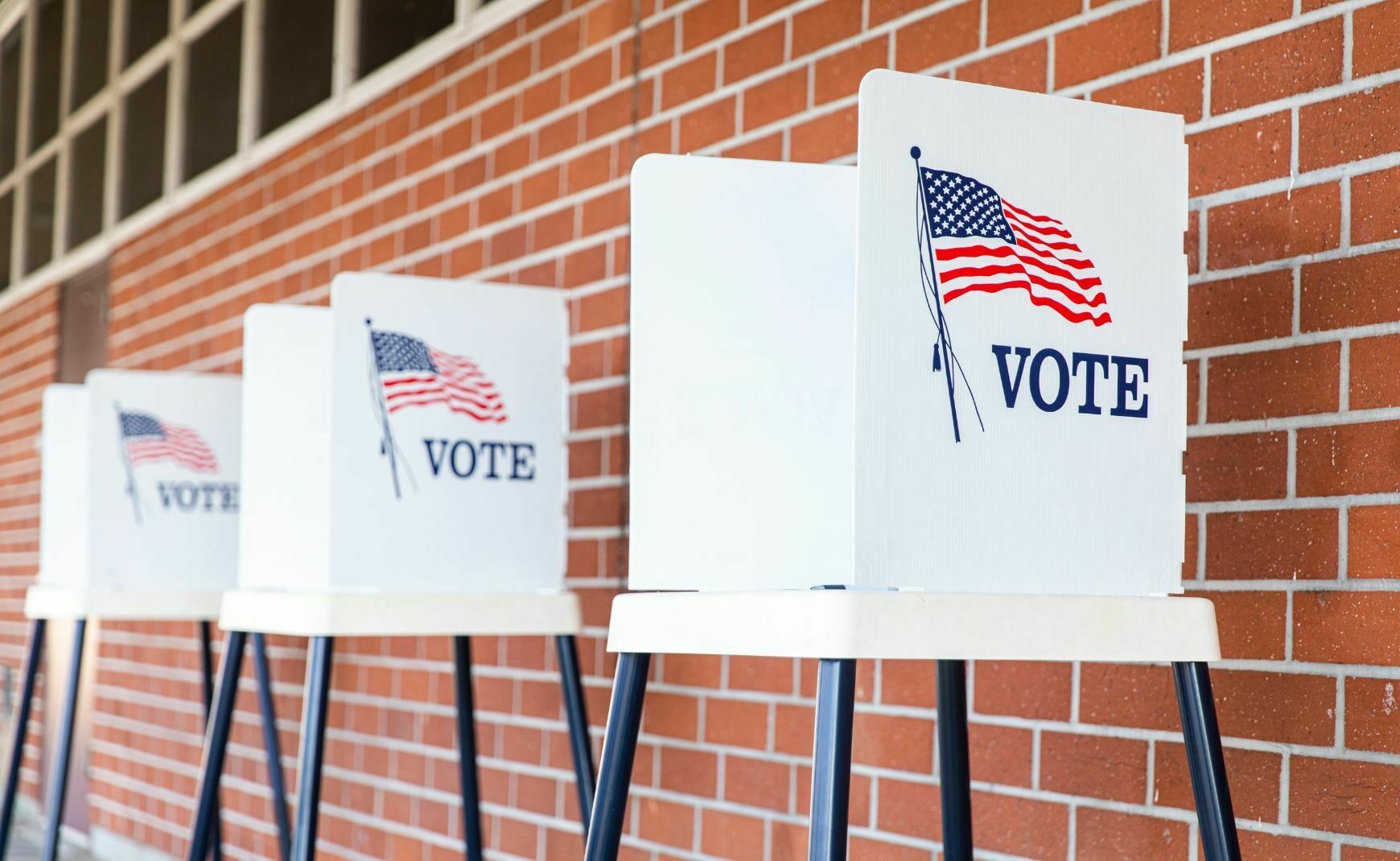The famous line “We have met the enemy and he is us” is from Walt Kelly’s comic strip, Pogo. Kelly adapted the line from a U.S. naval commandant who, during the War of 1812 against Great Britain, reported to his superior, “We have met the enemy and they are ours.” Kelly did the parody for the first Earth Day in 1970, a pro-state, antimarket, antihuman occasion.
More constructively, we can apply Kelly’s slogan to a bigger matter, namely, who’s to blame for the bad policies that representative democracy turns out? Is the culprit an elite group of politicians, bureaucrats, and Big Business/Big Labor cronies, that is, a ruling class that conspires against the public interest? Or is the culprit ” us,” or, more precisely, the voters?
Most libertarians, like most progressives, would reply “ruling class,” although David D. Friedman, a leading libertarian free-market anarchist, has been a major exception. (See The Machinery of Freedom: Guide to Radical Capitalism, 3rd ed., ch. 38, free online.) So too is economist and anarcho-capitalist Bryan Caplan.
Two important libertarian thinkers, Frédéric Bastiat (1801-1850) and Ludwig von Mises (1881-1973), also dissented from the common view that democracy is routinely hijacked. “One striking feature of the Bastiat-Mises view,” Caplan writes, “is that politicians are actually tightly constrained by public opinion. On their account, democratic competition keeps elected officials in line; if they deviate from majority preferences, they lose elections and their jobs.”
In his classic work The Law, Bastiat, the fantastic French classical-liberal political-economic essayist, pointed out that in a democracy with universal suffrage, the main potential threat to liberty and property would come not from a ruling elite but from the voters, who previously had no voice in the government.
If voters know nothing about economics and are antimarket to boot, watch out! They will want the politicians to interfere with market relations, not realizing that intervention is harmful because it has significant opportunity costs: all the good things that would have been produced had the government not engaged in “legal plunder.” The benefits of free markets are counterintuitive, and understanding requires knowledge, which the voters lack. So they favor import restrictions, business and farm subsidies, regulations, heavy spending, and other apparently free benefits.
Since the politicians want to be elected and reelected, they will cater to the voters’ preferences, even if the politicians know that those preferences are harmful. Democracy supplies poison because voters demand poison. The voters’ will is not substantially throttled by special interests.
Bastiat wrote:
Up to now, legal plunder has been exercised by the minority over the majority as can be seen in those nations in which the right to pass laws is concentrated in just a few hands. However, it has now become universal and equilibrium is being sought in universal plunder. Instead of the injustice existing in society being rooted out, it has become generalized.
In another place (Selected Essays on Political Economy, chap. 9), he wrote that “public opinion, whether enlightened or misguided, is nonetheless mistress of the world.”
And again (Economic Harmonies, chap. 4): “Political power, the law-making ability, the enforcement of the law, have all passed, virtually, if not yet completely in fact, into the hands of the people, along with universal suffrage.”
H. L. Mencken, that keen observer of America in the first half of the 20th century, might have read Bastiat: “Democracy is the theory that the common people know what they want, and deserve to get it good and hard.”
Caplan confirms Bastiat’s view. In various writings he explains that while most social scientists, including public-choice economists, believe that special interests do thwart the voters, it is untrue.
The “point is not that no unpopular policies exist,” Caplan and Edward Stringham write after scouring the data (citation below). “But bona fide examples are hard to come by, and quantitatively significant ones are scarcer still.” Time delays and “frictions” may put the politicians and voters out of sync—but only temporarily.
Voters can afford to be, in Caplan’s words, “rationally irrational.” In any election, each person can costlessly vote according to his antimarket biases since no single vote is decisive and the total cost of a candidate’s bad policies will be shared by all. (See The Myth of the Rational Voter: Why Democracies Choose Bad Policies and the articles linked below.)
Caplan points out that Ludwig von Mises took a position similar to Bastiat’s. In Theory and History, Mises wrote:
A statesman can succeed only insofar as his plans are adjusted to the climate of opinion of his time, that is to the ideas that have got hold of his fellows’ minds. He can become a leader only if he is prepared to guide people along the paths they want to walk and toward the goal they want to attain. A statesman who antagonizes public opinion is doomed to failure… [T]he politician must give the people what they wish to get, very much as a businessman must supply the customers with the things they wish to acquire.
I found that quote, like the Bastiat quotes above, in the first of two Caplan blog posts: Mises and Bastiat on How Democracy Goes Wrong, Part I, and Part II. (For more, see Caplan and Edward Stringham’s “Mises, Bastiat, Public Opinion, and Public Choice.”)
We might resist the claim that the people, not a ruling class, are to blame. But if we have a ruling class, it must be damned incompetent. The United States has the most progressive income tax in the West. The bottom half of income taxpayers pays only a tiny fraction (2.3 percent) of the national government’s revenue from the tax. The top 1 percent pays over 45 percent. Big businesses face myriad regulations, often with exemptions for small firms. New restrictions are proposed almost every day. Antitrust prosecution always looms for the successful. Businesses and farmers get subsidies and other favors, but most people support them as socially beneficial.
Moreover, privileges granted to one industry impose higher costs on others. Tariffs for U.S. steelmakers burden steel-using companies, making them less competitive in the global market. If this ruling class is so fragmented and ineffective, maybe the concept is so imprecise that it is misleading.
When well-connected interests (who include not only business people) influence policy, Caplan writes, it’s at the margin and, if anything, waters down what the majority wants. Caplans notes that more-educated people tend to understand economics better than less-educated people. Without “elite” influence, tariffs and minimum wages might be more destructive than they are.
Well, if the state is not “the executive committee of the ruling class,” as Marx claimed, what is it? It’s a bazaar where candidates offer goodies to blocs of economically illiterate citizens. The currency is the vote. To gain power, politicians need to win a majority—repeatedly. Yes, the people are propagandized, but just as businesses fail when enough consumers exercise skepticism about a product, regardless of advertising, so voters can exercise skepticism about the politicians’ claims. People are not robots, and they encounter competing sources of propaganda/information. The joint that connects official propaganda to popular opinion is, to say the least, loose. If people are gullible, who’s to blame?
What’s the bottom line? No one can triumph in a struggle without first identifying the adversary. If the adversary is a shady, manipulative, nearly omnipotent ruling class, that would require one strategy. But if the adversary is the public’s economic illiteracy and, as Mises repeatedly put it, its failure to grasp its “rightly understood (i.e., long-run) interest” in the free market, that’s another matter entirely. Since that is indeed the case, freedom advocates should act accordingly.
The battleground is human understanding and nothing else, not even institutions, Mises says. As he wrote in Human Action, using 1930s monetary policy as an example (emphasis added):
“Whatever the constitutional state of affairs may be, no government could embark upon ‘raising the price of gold’ if public opinion were opposed to such a manipulation. If, on the other hand, public opinion favors such a step, no legal technicalities could check it altogether or even delay it for a short time.”

































